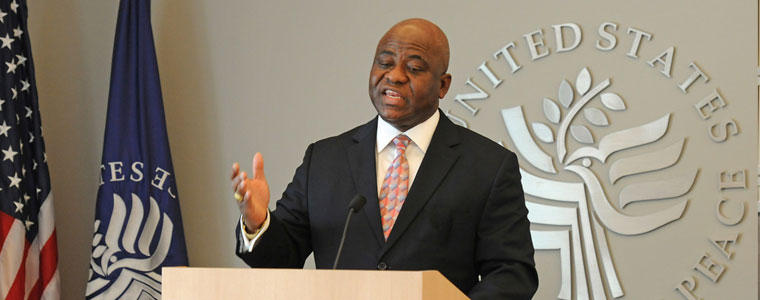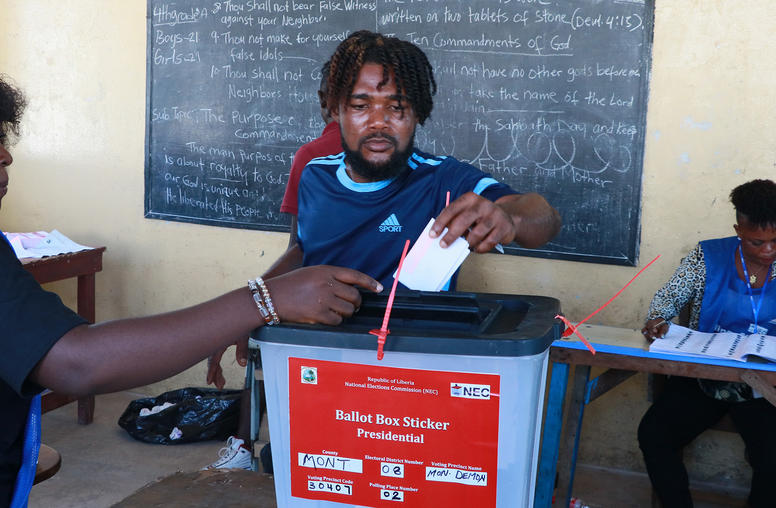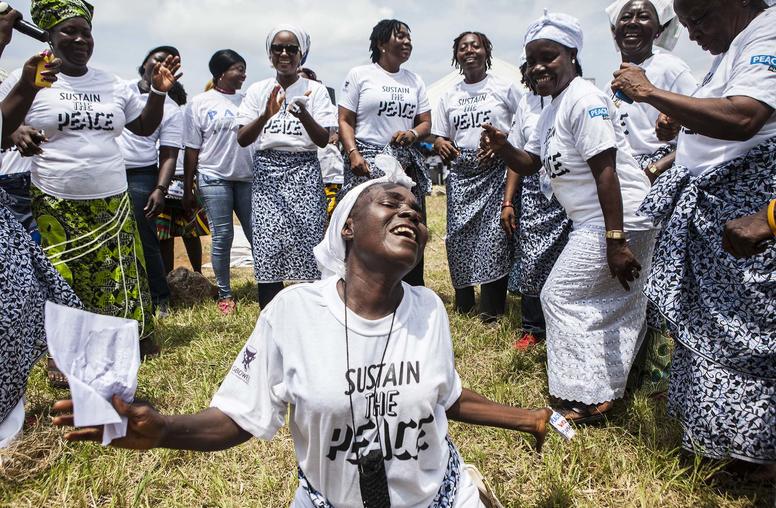Security Sector Transformation in a Post-Conflict Liberia
Security Sector Transformation in a Post-Conflict Liberia Liberian Defense Minister Hon. Brownie Samukai outlined plans to have the nation’s security forces and institutions fully operational by 2014. Liberia's security sector transformation can provide a number of lessons for the United States in Afghanistan, which will also take on responsibility for its security in 2014.

Between 1989 and 2003, Liberia's civil war claimed approximately 250,000 lives, displaced almost a million people, disrupted an entire nation and destabilized the sub-region. Since the end of hostilities in 2003 and the return to democracy in 2005 under the leadership of President Ellen Johnson Sirleaf, the country has been gradually rebuilding and returning to normalcy.
In June 2011, President Sirleaf visited the U.S. Institute of Peace to discuss her country's ambitious postwar transformation. A critical aspect of Liberia's recovery is improved security sector governance.
Indeed, efforts to foster political, social and economic progress must be underpinned by a robust security sector.
This issue takes on added significance in Liberia as the United Nations peacekeeping force, UNMIL, gradually transfers responsibility for policing and the military to the Liberian government.
Speaking at USIP on April 4, Liberian Defense Minister Hon. Brownie Samukai outlined plans to have the nation's security forces and institutions fully operational by 2014. Samukai said he thought Liberia made a very good example of post-conflict transformation.
After the briefing, Robert Perito, director of USIP's Security Sector Governance Center, which focuses on developing effective and accountable post-conflict security forces and supervisory institutions, remarked on the minister's talk, saying, "Unlike other countries, Liberia has followed a plan for the comprehensive development of its security sector, both military and police. Also unlike other countries, the size of the military and police forces are such that Liberia will be able to sustain them with its own resources."
Following the minister's talk, Ambassador John Blaney, who served in Liberia from 2002 to 2005, discussed the biggest challenges facing Liberia in its recovery process. First, he asked, how successfully will Liberia deal with the loyalty issue and ensure that there will be no coup attempt that would unravel all the progress? The second biggest challenge, he observed, is dealing with systemic corruption.
How Liberia continues its security sector transformation can provide a number of lessons learned for the United States in Afghanistan, which will also take on responsibility for its security in 2014.
When asked what lessons we could draw from Liberia, Perito responded: "Liberia has developed a realistic and detailed plan for the transition from United Nations to national responsibility for maintaining security. This plan has been approved by all the participants and will be implemented in a series of steps to be completed by 2014. The U.S. faces a similar transition in Afghanistan with the same 2014 deadline."
However, Perito noted, "the U.S. has not developed a comprehensive plan nor has the Afghan government agreed to the steps required to fully assume responsibility for its own security."
Meanwhile, to date, Liberia's post-conflict recovery process appears to be a success story for other nations.
"Considerable progress has been achieved, the situation is fragile and gaps remain in the development process. Corruption and loyalty remain issues in the security services. These problems notwithstanding, the security sector has made more progress than other sectors, which itself is a problem," Perito said.
Since 2006, USIP has assisted in Liberian law reform and conducted extensive field research on how formal and customary systems are perceived and utilized by Liberians as well as the implications for policy regarding the justice sector.


